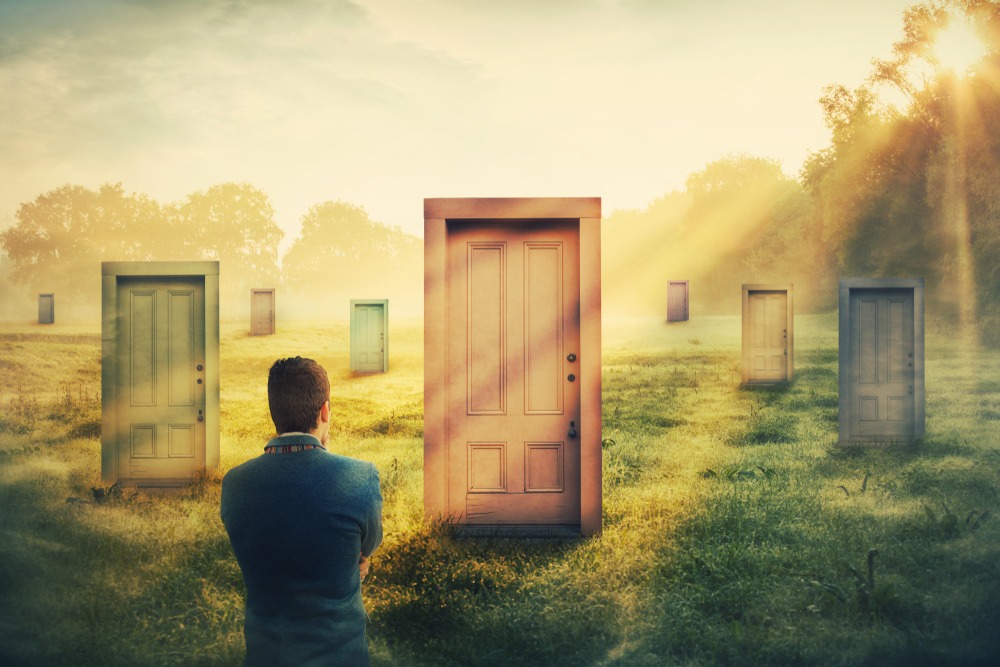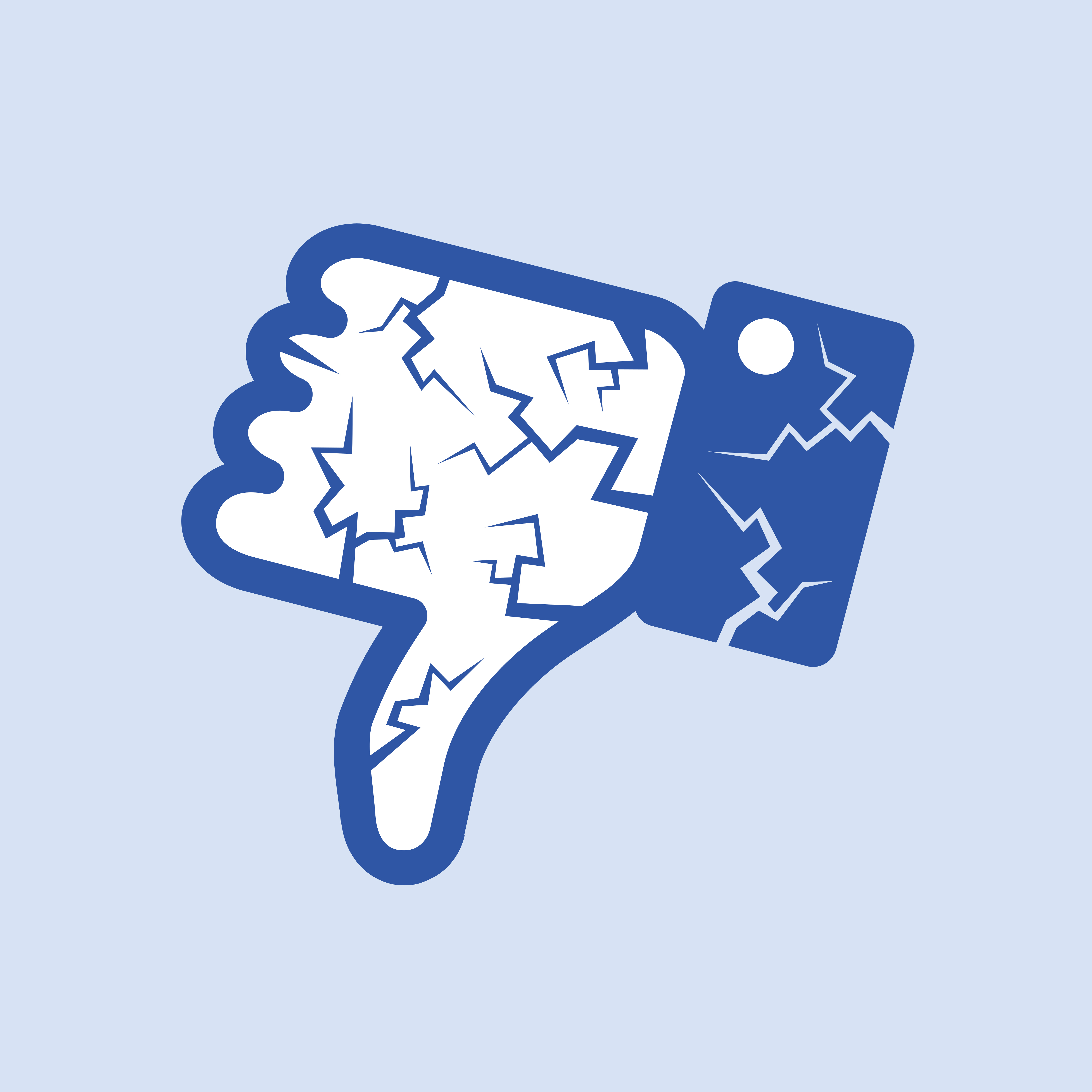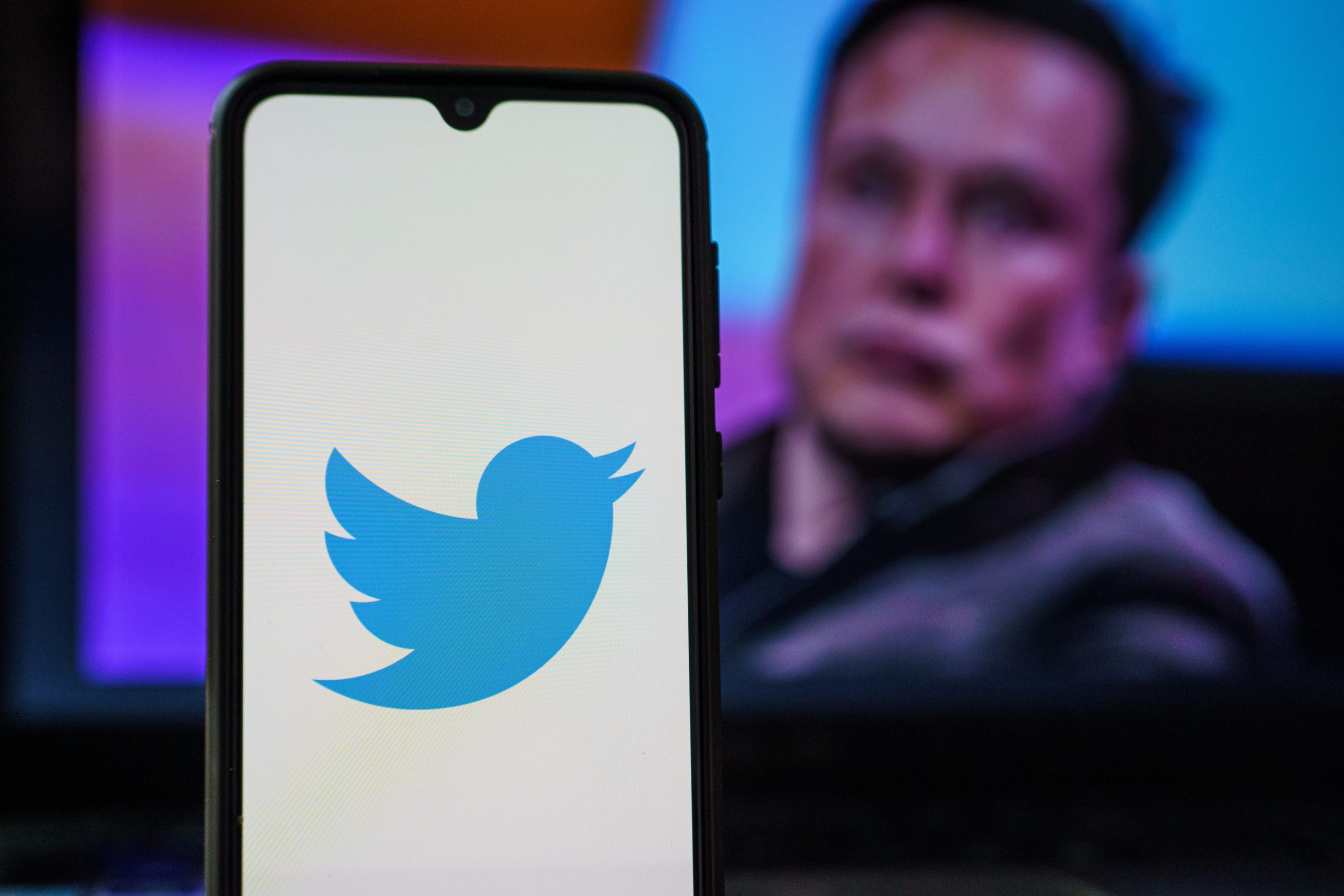
We are living in an Age of Uncertainty. Or perhaps better put, an era where “all bets are off.” (That’s a contradiction when you consider we’re in a world where consumers can bet on virtually anything.)
Our conversations are punctuated by drawing attention to seemingly smart people who somehow “got stupid overnight.”
Pro sports drafts are a great case in point. General managers, armed with mountains of data, make disastrous calls every year. “Draft busts” are a regular topic on Sports/Talk radio because they happen with great frequency and they give the powerless a sense of superiority (even though most of them would’ve made the wrong call, too.).
 And then there’s the pandemic. How could all those scientists at the CDC, the NIA, the WHO (not to mention Dr. Fauci) not foresee how COVID would/would not spread? The fact is, like most other professionals in leadership positions, they make their best calls with the data they have, combined with their life experiences.
And then there’s the pandemic. How could all those scientists at the CDC, the NIA, the WHO (not to mention Dr. Fauci) not foresee how COVID would/would not spread? The fact is, like most other professionals in leadership positions, they make their best calls with the data they have, combined with their life experiences.
Sadly, the oddsmakers are losing their minds because things that shouldn’t be happening are – with alarming frequency and regularity. How many “100 year” weather events has the world and the U.S. experienced in just the past few years? (Oh, that’s right – wasn’t the last pandemic about 100 years ago?)
We’re all faced with difficult decisions and tough calls. When I launched Classic Rock in the early 80’s, few believed it would work – or last. There’s no way a gold-based radio format could be sustainable. Today, it’s hard to find all those naysayers.
And then there was the CEO who picked up the phone and called me about a station that I consulted that nose-dived after hiring the “wrong morning show” to replace the one he let get away. His question (accusation) to me? “How could you let this happen?” Of course, all the moves were his idea.
In the world of media and technology, the epic fails are numerous and  costly. For starters, there’s Rupert Murdoch, considered a financial (evil?) genius – by many. He had the vision to buy MySpace back in 2005 when it was a social media high-flyer. The price? $580 million.
costly. For starters, there’s Rupert Murdoch, considered a financial (evil?) genius – by many. He had the vision to buy MySpace back in 2005 when it was a social media high-flyer. The price? $580 million.
Admittedly, “”a mistake,” the famous CEO of News Corp was later quoted about his decision: “We could have sold it for $6 million a month later.” In reality, he offloaded MySpace to an ad agency for $35 million six years later. It’s like a bad episode of “Succession.”
He’s not alone. Mark Zuckerberg has done pretty well these past several years, navigating Facebook, while strategically purchasing other social brands such as Instagram and WhatsApp to help play defense and protect his social media fortress.
 And yet, Zuck and his highly experienced team somehow didn’t see a major social media change in the winds. As Ethan Vanian wrote on a CNBC blog post last week, “Mark Zuckerberg said he missed a giant shift in social media.”
And yet, Zuck and his highly experienced team somehow didn’t see a major social media change in the winds. As Ethan Vanian wrote on a CNBC blog post last week, “Mark Zuckerberg said he missed a giant shift in social media.”
The change? Social media users – especially younger ones – are looking for great content rather than a tool to keep up with friends and family. Enter TikTok, who Zuck now calls a “very effective competitor.”
The Facebook team was caught flat-footed. How did Zuck miss the intrinsic appeal of TikTok? How did he not realize that teens were rapidly moving away from conventional social platforms like his? As he admitted in a recent interview, Facebook was “somewhat slow to see this because it didn’t fit my pattern of a social thing, it felt more like a shorter version of YouTube to me.”
You think that’s a miss?
How about autonomous cars? Yes, we’ve been talking about their eventuality for years now. The automakers and companies like Uber, Google, and many Tier 1 companies have sunk billions into this technology.
And earlier this month, Bloomberg’s Max Chafkin wrote this provocative headline that was hard to ignore:
“Even After $100 Billion, Self-Driving Cars Are Going Nowhere”
If Chafkin is right, and the autonomous promise is years if not a decade or two away, Rupert Murdoch’s got to be feeling good about his comparative penny ante debacle with MySpace.
The Bloomberg story is an in-depth look at the fits and starts suffered by this technology, complete with an analysis that autonomous is nowhere near ready for drive time.
Why are so many self-driving test markets in the Sun Belt. Chafkin believes its due to more simple weather and traffic problems. He notes that even the technology’s most staunch advocates are having second and third thoughts about whether it will ever be a mass form of transportation.
And then there’s Elon Musk, deemed to be perhaps the most out of the box thinker in the industry. Yet, he may end up becoming the not-so-proud owner of Twitter.
box thinker in the industry. Yet, he may end up becoming the not-so-proud owner of Twitter.
Donald Trump’s favorite social media outlet has always been in Facebook’s giant shadow. And Musk has bragged he knows just how to fix it. Now he may get his chance.
If the deal goes through, we might see Twitter turn its fortunes around with Elon Musk behind the wheel. Or we might learn that the exorbitant price tag of $43 billion may sink the ship before it leaves port.
If Musk ends up having to live by the deal he cut, and gets saddled with his expensive social media toy, we all may be able to watch this transformation from our ringside seats in the Twitter peanut gallery.
Bad deals, lame decisions, and gross miscalculations are all the price of doing business – and not always seeing clearly around the corners.
And that brings us to radio. It is easy to second guess the industry’s CEOs – what they bought, what they walked away from, who they hired, and of course, who they fired.
I’ve met and worked with many of them through the years. While most (with a few major exceptions) welcomed research to help them and their teams through the decision-making process, many ultimately are forced to make gut calls. And intuition plays a major role.
 Spreadsheet analysis only tells you so much about an acquisition. There are the “people problems” – often in the form of onboarding a new company and new employees. Some of the best deals on paper have been scuttled by the lack of company chemistry between the buyer and the acquired.
Spreadsheet analysis only tells you so much about an acquisition. There are the “people problems” – often in the form of onboarding a new company and new employees. Some of the best deals on paper have been scuttled by the lack of company chemistry between the buyer and the acquired.
There’s enormous pressure when executives are faced with making that game-changer purchase or partnership. It is indeed why they get paid the big bucks. But in the case of the biggest movers and shakers – Rupert Murdoch, Mark Zuckerberg, and Elon Musk – it was more than just money.
They were acting on their feelings – call it intuition – about what’s next.
Nothing in business – be it sports, entertainment, or pop culture – is a more difficult call to make.
Hats off to those tasked to do it every day. (Even Murdoch, Zuckerberg, and Musk.)
You and your company can get the edge on what’s next by joining Paul and me for our curated CES tours this January in Las Vegas. We do all the heavy lifting – you just need to show up and pay attention. Details here.
- In Radio, You Just Never Know - April 17, 2025
- The Secret To Making A Great Podcast (And Great Radio) - April 16, 2025
- I Read The (Local) News Today, Oh Boy! - April 15, 2025




Spot on once again! Moral of the story… bad decisions all too often neutralize, or outweigh the good ones! I learned a long time ago – “Fail Fast” and recognize those decisions as quickly as possible.
Bob, spot on. Thanks for the comment.
Did operators harm and take away from local radio by going overboard on podcasting?
The jury’s still out on whether the biggest companies will be better off, more diversified, and more profitable with their podcasting divisions. And what toll it took on their radio holdings?
In many cases…
At broadcast companies…
It wasn’t the decision that was wrong…
It was requiring all their entities to equally abide.
You mean “scalable?”
No one bats 1000 – but despite some noteworthy mistakes, Zuckerturd and Murdoch are each probably worth more than all of their critics put together and they’ve been right way more than they’ve been wrong. I can’t say I like the way either of them did it, but investing in either provided a fabulous return.
Radio…not in a long time. It was seduced and abandoned by Wall Street and never really recovered. It’s seemed like quicksand for radio ever since.
Even the wealthiest screw up. At least both Zuck and Murdoch admitted it. It will be interesting to see how the Musk/Twitter deal come off – or falls apart.
I’ve respected your thoughts and actions for decades but every now and than comments are made that make sitting back and accepting them a non-option. Hence this response.
Will swing back to Murdoch in a moment, because your “How could all those scientists at the CDC, the NIA, the WHO (not to mention Dr. Fauci) not foresee how COVID would/would not spread? needs to be immediately addressed with a simple answer: 2/27/20 – Trump “One day it’s like a miracle, it will disappear.” His administration was a motivating force behind congealing a movement of not acting in the interest of society: No-masks. No Vaccines were the catalyst for over 120,000 American deaths by January 20, 2020 – by then the psyche was well implanted, and the reason why 1.06 million Americans are dead today. (More examples available on request.)
“Trump officials interfered with CDC guidance for political purposes, House panel finds” – The Hill: https://thehill.com/policy/healthcare/3693002-trump-white-house-officials-interfered-with-cdc-guidance-for-political-purposes/
Are you aware that on September 29, 2020 the former President mandated that all Covid-data stop being sent to CDC? Data was to first be forwarded to the White House where it was laundered prior to distribution – (do a search) I reported on this back then. Please explain how none of Murdoch’s “media” felt it necessary to do the same?
About autonomous cars? … “Even After $100 Billion, Self-Driving Cars Are Going Nowhere” We’re both old enough to have seen a Walt Disney episode in the late sixte’s about vehicles of the future. It was awash with self-driving cars by the late 1980s. Technology isn’t the problem. Path Dependency of society is the force holding back acceptance, as it was when August Dvorak introduced his new keyboard layout in 1936. Prior, the typewriter’s keyboard was designed to slow typist down – they were moving too fast for the mechanics of the day. Also by 1936 society had become too ingrained with Path Dependency to change. That’s why you’re still using a keyboard layout on your computer that was designed around the early 1900s. (As a BTW: I am one who wouldn’t get into an autonomous vehicle – I’m too path dependent on control.)
As for Murdoch, this wasn’t a screw-up on his part. It was participation in undermining truth and democracy through his multiple Fox affiliates (joined by Salem, Sinclair, OAN, or any radio talk station today): reporting voter fraud as if it is real, with no journalism on the truth; supporting numerous lies from the prior administration as if it was report worthy; and, as is reported today, failing to report the raping of America’s taxpayers through vast overcharges to his presidential security details – https://www.newsweek.com/trump-overcharging-secret-service-cost-1-4-million-1752515 (see if you can find any mention of this at foxnews.com)
Murdoch should never be given a pass claiming he made a mistake. To do so is the mistake.
Ken, you know I value yours and everyone’s opinion here. I totally appreciate your POV on all these issues. And you’re correct they’re all more complex than the binary “hit/miss” value I put on them. Thanks for the comment.